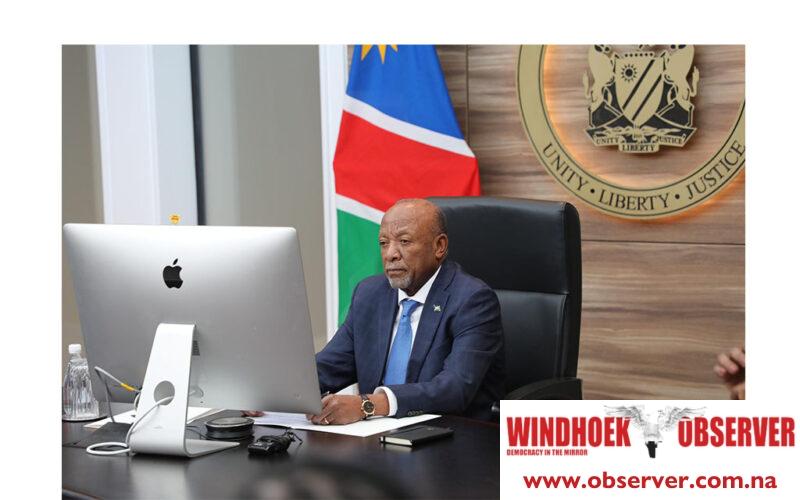Niël Terblanché
Ahead of his departure for New York on Monday to attend the United Nations General Assembly (UNGA), President Nangolo Mbumba has urged member states to reflect on how they can strengthen multilateralism.
Over 190 world leaders, including President Mbumba, will participate in this year’s UNGA, seeking solutions to some of the world’s most pressing challenges.
Mbumba will deliver his maiden address at the General Assembly.
The president is set to highlight Namibia’s contribution to shaping the Pact of the Future, while also outlining the nation’s aspirations for a more equitable and sustainable global order.
He will also hold high-level meetings with UN Secretary-General Antonio Guterres and the President of the General Assembly, Philemon Yang.
The 79th UNGA also marks the end of Namibia’s late President Hage Geingob’s term, a key figure in Namibia’s co-facilitation of the Summit of the Future.
Geingob’s contributions, both before and after Namibia’s independence, were celebrated earlier this year in a special UN session, recognising his key role on the global stage.
With the negotiations for the Pact of the Future already underway, the President during a teleconference, highlighted the critical importance of this global framework in addressing the pressing challenges of today’s world.
Namibia, along with Germany, will be co-hosting the Summit of the Future (SOTF), which will culminate in the adoption of the Pact.
The Summit, to be held later this week, provides a platform for countries to renew their commitment to collective action.
President Mbumba, along with German Chancellor Olaf Scholz, will address participants at the summit, emphasising the role of multilateralism in navigating complex global challenges.
During the teleconference last week, Mbumba expressed hope that the Pact of the Future would set the stage for stronger representation and inclusivity, reflecting current global realities.
“These global realities range from geopolitical tensions to the urgent need for the implementation of the 2030 Agenda for Sustainable Development,” he said.
He underscored the necessity for United Nations reform, particularly the restructuring of the UN Security Council, to ensure it can address contemporary challenges more effectively.
Namibia has long advocated for reforms within the UN’s most powerful body, the Security Council.
Mbumba said that he is optimistic that the Pact of the Future will address these concerns and strengthen global governance mechanisms.
“I envision a reformed Security Council that is more inclusive, representative, and capable of responding to the world’s evolving needs,” he said.
Chancellor Scholz echoed these sentiments, noting that the Pact of the Future will enable the UN to reinforce the fundamentals of international order.
Both leaders are expected to deliver a global call for action, urging member states to make bold commitments that will shape the future of multilateralism.
The Pact of the Future, an inter-governmentally negotiated document, aims to be action-oriented, ensuring concrete results in addressing global issues.
It is set to be adopted at the end of the Summit of the Future, preceding the UN General Assembly.
As President Mbumba departs for New York, Namibia’s role as a champion of multilateralism will be front and centre at the Summit of the Future.
Namibia’s voice, particularly in co-facilitating the Summit of the Future, is poised to shape the global agenda for years to come.




